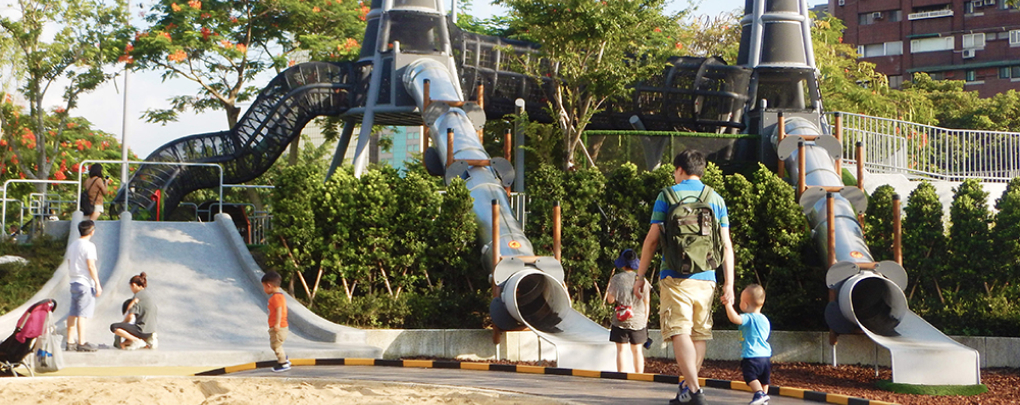
About FJULA
Located in the College of Arts Building, the department enjoys sufficient teaching space and equipment. Supported by Fu Jen Catholic University's excellent academic atmosphere and resources, the faculty's teaching and research, as well as students' learning performance, have maintained a high level. As a result, the admission standards and enrollment rates have been consistently high. Starting from the 101 academic year, the department began to admit international students (both bachelor's and master's programs). The undergraduate program takes four years to complete, requiring students to complete 132 credits of required and elective courses and pass the graduation design to obtain a Bachelor of Fine Arts degree. The master's program takes two years to complete, requiring students to complete 34 credits of required and elective courses and pass the thesis defense to obtain a Master's degree.
Characteristics of the Undergraduate department
Built on the aforementioned foundation, the main teaching and research areas of the department include:
- Advanced Design Practice
- Ecological Environmental Governance
- Urban Studies
- Local Revitalization
Compared to other related departments in Taiwan, the department has the following unique advantages:
- The faculty's expertise covers various aspects of landscape design, including landscape planning and design, architecture, urban planning, horticulture, and art, providing students with a wealth of knowledge and experience.
- The department offers various channels for international exchanges with Mainland China and foreign countries, helping students expand their global perspectives.
- Fu Jen Catholic University has multiple different disciplines within its various colleges, providing opportunities for students to engage in interdisciplinary learning.
- The Fu Jen University MRT Station connects the department to the Greater Taipei area, allowing students to actively participate in various cultural and academic activities in Taipei.
Characteristics of Graduate School
- Cultivate diverse and adaptable landscape professional skills.
- Foster a global awareness and a local mindset with a macro perspective.
- Enhance basic qualities in arts, humanities, and environmental ecology.
The department's teaching philosophy focuses on the substantial content of "environmental design" and has evolved into a systematic approach in recent years. Starting from individuals' daily lives, students gradually learn how to address the needs and expectations of "communities," "societies," and even "countries" in environmental space and resource utilization. The department places particular emphasis on presenting and critically examining different values during the planning and design process. It advocates the landscape profession's firm commitment to the ideas of "diverse cities," "social justice," and "nature conservation" to provide environmental design of the highest public benefit through professional services.
"Independent Learning" and "Service Learning" are important educational strategies in our department. While most of the basic learning in the first, second, and first semester of the third year takes place on campus, the cultivation of environmental observation abilities begins with each outdoor teaching and field investigation opportunity, with course instructors guiding possible discussions. In the second semester of the third year, the fourth year, and the graduate program, we actively lead students to engage in service learning and professional internships, immersing them in real-world scenarios involving specific communities or environments. This allows students to face real users and the various changes in environmental situations, promoting active listening, effective communication, accurate judgment, and creative design.
To implement the core principles of design education, the four-year undergraduate design training includes a series of continuous and mandatory courses. The curriculum comprises basic design (Year 1, both semesters), landscape design (Years 2 and 3, four semesters), and graduation thesis design (Year 4, two semesters). The design courses are vertically integrated between different years, progressively deepening and broadening the learning experience while emphasizing rational thinking. Design courses for Years 1 to 3 provide students with ample opportunities for individual learning. The class is divided into six groups, each with one-on-one design guidance and reviews. In the fourth year, the graduation thesis design allows students to select an environmental issue and practical site they are interested in. They engage in a year-long thematic planning and design exploration with their supervising professors, providing comprehensive training for students to prepare for their future professional careers.
First Year: "Enlightenment and Foundational Education" - Creative Thinking and Expression
Second Year: "Introductory Landscape Professional Education" - Site Analysis and Landscape Design
Third Year: "Comprehensive Professional Education" - Landscape Planning and Community Design
Fourth Year: "Responding to Social Issues in Professional Education" - Comprehensive Planning and Practice
The graduate program has two distinct features: "Professional Research Development" and "Trends in Environmental Issues." In terms of core curriculum design and planning practices, the graduate program offers courses such as Landscape Research Seminar, Advanced Landscape Design, and Special Research Topics, which combine real planning and design or service learning experiences. Using design workshops, students develop comprehensive abilities in analyzing planning and design issues and proposing creative solutions. In research methods, the graduate program offers courses such as Research Methods and Thesis Writing, Quantitative Landscape Analysis, Qualitative Research, and Special Topics Discussions. These courses cultivate students' critical thinking skills and a rigorous scholarly attitude as a foundation for writing their graduation theses.